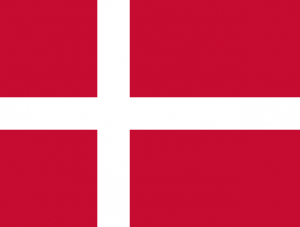Laplandar consists of 4 bike-industry experts responding to a market gap in the green mobility sector. In the past 2 years, we have developed, trialled, and sold version 1.0 of Laplandar, an e-cargo bike built for heavy-duty use. Through this process, we have identified shortcomings in the existing e-cargo bike market and the growing demand for these tools by businesses. Today we are wrapping up a year of direct customer interaction to inform the development of Laplandar 2.0. These conversations have led to confirmed interest from logistics companies such as Bring and PostNord, from commercial leasing companies such as JOOLL, and construction companies such as HOFOR and A/S Julius Nielsen & Søn. These client conversations and their demands have shaped the basis for Laplandar 2.0’s development. E-cargo bikes are a specific solution for a broad range of businesses looking to reduce costs such as parking, licensing, maintenance, and fuel, while increasing their visibility, green profile, and speed of urban delivery. Our primary competitors are the few other manufacturers of business-specific cargo bikes. These include RadKutsche, Velove, Cyclus and Maximus. We are differentiated by our low comparative purchase price, high-power motors, and best-in-class cargo capacity. We are going to pursue the first EU L1e-A certification for an e-cargo bike company. This certification will allow us to increase our cargo capacity beyond the current 250 kg maximum, and our motor’s power beyond the consumer maximum of 250 W. Our competitors have not pursued this certification, or this power and capacity demanded by clients.
Our success story
Laplandar sold its first 10 bikes within two months of launching on the commercial market. Our first customer is a commercial leasing company who sees the potential of leasing Laplandars to a wide range of industry clients. They have even created a B2B specific leasing company within their existing firm.
One of our initial clients is an e-scooter company who sought a greener solution for collecting scooters for charging and maintenance. They were thrilled with the long-lasting battery power and the speed at which they could travel through Copenhagen with a Laplandar.
Laplandar has recently secured an InnoBooster grant from the Danske InnovationsFonden. These resources are being used to develop Laplandar 2.0 to meet the needs of our most valuable clients.
Arguments for our solution
Customers who have expressed a direct interest in purchasing the Laplandar 2.0 include: Danske Fragtmænd (who has requested roll-on, roll-off cargo capability), PostNord (who identified digital locking and tracking as a necessity), Bring (who requested greater weight capacity compared to the 1.0), Domino’s Global, Circ e-scooters, Lime e-scooters, JOOLL commercial leasing, Clauss Moller Leasing, IKEA, Free Trailer, Simple Feast, and Nemlig.com. We have direct e-mail and in-person communication documenting this interest. The World Economic Forum (2020) found that the demand for urban last-mile delivery is expected to grow 78% by 2030, leading to
36% more delivery vehicles in the world’s top-100 cities. A recent study revealed that e-cargo bikes are up to 2,000% more energy-efficient than a diesel van when
delivering parcels and groceries (Parcels and Pollution, 2019). The B2B market for electric cargo bikes is growing rapidly. Cycling Industries Europe noted that e-cargo bikes could replace 32% of urban deliveries and up to 50% of service trips (Cycling Industries EU, 2019). Germany saw a 40% increase in e-cargo bike sales in 2019, and over 56,000 units sold in Germany alone in 2020 (Cycling Industry EU, 2020). One of our initial clients, Clauss Møller Leasing, stated he expected to sell hundreds if not thousands in the upcoming 5-10 year period. We expect to gain a market share of 1.5% by 2022. This number is realistic, as we have gathered explicit interest from global companies with fleets of 50 vehicles or more. Furthermore, we believe that we can continue to expand sales internationally within these business verticals as we build positive case studies (time saved, maintenance cost reduced, visibility improved, etc.). We reach our customers via direct sales (cold calling, email, LinkedIn), through our industry-relevant network (EU CycleLogistics Federation), industry events and trade shows (VeloCity, Post and Parcel), press releases (Børsen, Berlingske), digital marketing (LinkedIn, Instagram), incentivized referrals, and by visibility on city streets. Our competitors have not developed an e-cargo bike which has fulfilled the needs highlighted by the companies poised to use e-cargo bikes. For example, Post Nord has trialled extensively with other e-cargo bike companies, but they have informed us that our version 1.0 comes as close as any to meeting their needs. We have incorporated their additional needs into the outline for the development of Laplandar 2.0.




